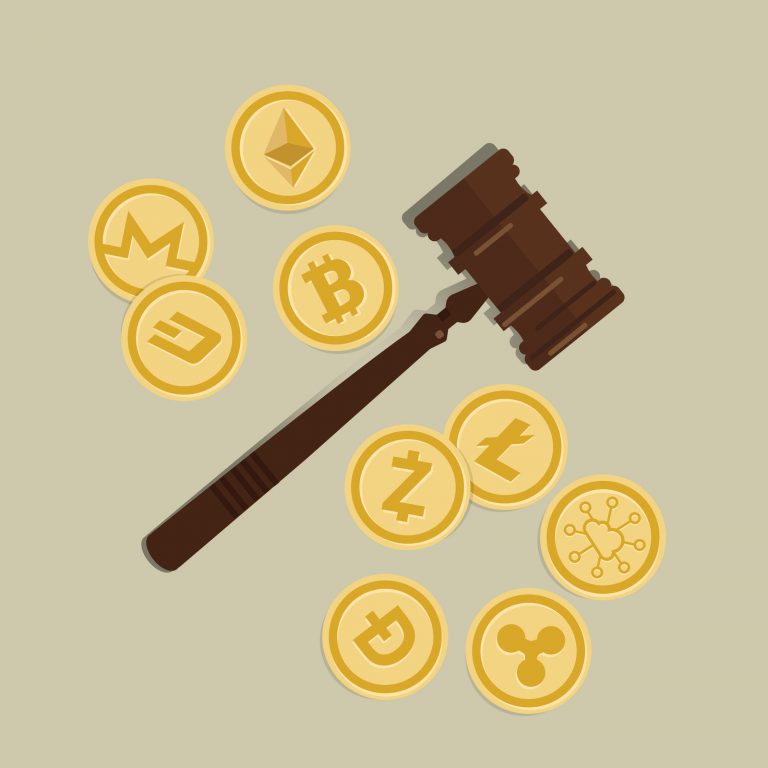
2024-3-28 23:29 |
In a world where geopolitical tensions frequently reverberate across industries, Israel’s crypto ecosystem has emerged as a beacon of resilience and innovation. Despite the ongoing conflict, the crypto sector in Israel continues to thrive, showcasing remarkable adaptability and growth.
Collider’s latest report offers a comprehensive glimpse into this dynamic landscape, highlighting how Israeli crypto ventures navigate challenges amidst adversity.
To gain deeper insights, Invezz spoke to Sebastian Lehrer, an analyst at Collider. Sebastian’s dual identity as an Argentinian/Israeli lends a unique perspective to his analysis, offering invaluable insights into the intricacies of Israel’s crypto landscape.
His firsthand experience and expertise provide a nuanced understanding of how geopolitical factors intersect with the vibrant crypto ecosystem in Israel, making his insights particularly insightful and relevant. Edited excerpts:
Interview with Sebastian LehrerInvezz: Can you discuss the key findings of Collider’s recent report on the Israeli crypto ecosystem amidst the ongoing war?
Firstly, Israel is home to over 145 companies actively developing in the crypto space. Israeli companies have managed to raise more than $100 million since October 7.
This fundraising is particularly noteworthy as it has occurred despite the crowding out of foreign investments in Israeli companies due to the war. Most Israeli crypto projects are focused on cybersecurity and infrastructure.
The report also highlights the emergence of Starkware, the first Israeli crypto decacorn, marking a significant milestone in Israel’s crypto industry.
Invezz commentary
Spot bitcoin exchange-traded funds (ETFs) have emerged as a groundbreaking instrument in the crypto market, providing investors with a convenient avenue to track bitcoin’s price movements directly.
Unlike derivatives-based ETFs, spot bitcoin ETFs invest directly in bitcoin, reflecting its real-time price.
Each ETF share corresponds to a specific amount of bitcoin held in reserve, ensuring a regulated and secure pathway for both individual and institutional investors to engage with the crypto market.
The recent green light from the US Securities and Exchange Commission (SEC) for several spot bitcoin ETFs in January has significantly propelled bitcoin’s price upward.
We asked Sebastian what the SEC nod has done for crypto markets in Israel.
Invezz: How has the approval of multiple Bitcoin ETFs by the SEC impacted investments in the Israeli crypto market?
With over $11 billion flowing into the crypto space, institutional investors now have a reliable instrument for crypto investment. This influx of capital has contributed to a surge in the prices of crypto assets, which has, in turn, been advantageous for Israeli companies active in the space.
As more investors, whether institutional via ETFs or retail users encouraged by the bull market, enter the space, there’s significant potential for growth for companies building in the crypto industry. This speculation about a potential upside is what has drawn funds to invest broadly in the market, including in Israel.
Invezz: What factors have contributed to Starkware becoming Israel’s first crypto Decacorn, and what does it signify for the local industry?
They were early movers in the zero-knowledge space, which certainly set them apart.
They’ve got a stellar team; Eli Ben Sasson, a leading academic in the space, was one of the top researchers on zero-knowledge proofs long before founding Starkware.
Their rollup, Starknet, now has more than $315 million in Total Value Locked, showing that they have managed to capture a large user base.
Plus, the general bullishness in the crypto market has spilled over to them. This excitement has caused the value of $STARK to shoot up.
Since transaction fees on Starknet can be paid with their token, STARK, investors are betting on Starknet’s growing adoption.
Challenges for crypto in conflict struck IsraelInvezz: Despite challenges, Israeli entrepreneurs are thriving in the crypto space. How have they maintained momentum amidst adversity?
Israeli resilience is crucial here. The history of navigating through multiple wars has instilled a deep sense of perseverance in the Israeli psyche.
We have seen it very clearly with our portfolio companies; they continued to build and ship awesome products, despite everything that surrounded them.
Crypto security trendsInvezz: The security sector in Israeli crypto is flourishing. What do you attribute this success to, and how might it influence global crypto security trends?
The flourishing of the Israeli security sector in crypto is due to a combination of three things: the large number of graduates from IDF intelligence units, the top-notch academic institutions, and the thirst for startup building among Israelis.
Israel is already a leader in Web2 cybersecurity, with fifteen of the world’s 45 cybersecurity unicorns being Israeli.
Considering that Israel accounts for only 0.1% of the world’s population, this achievement is truly amazing. Israeli companies will dominate and are already starting to dominate, Web3 Security.
The post Interview: Sebastian Lehrer of Collider says Israeli cos will dominate Web3 security appeared first on Invezz
origin »Bitcoin price in Telegram @btc_price_every_hour
Emerald Crypto (EMD) на Currencies.ru
|
|













